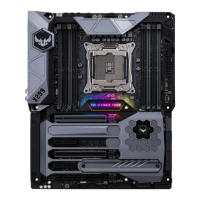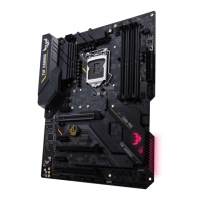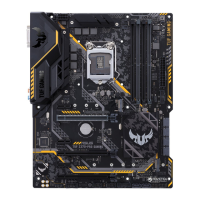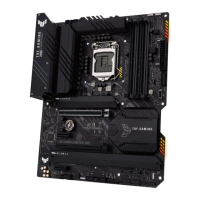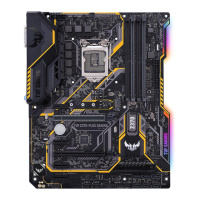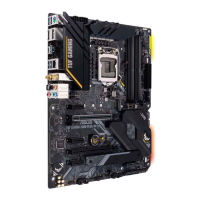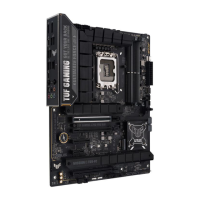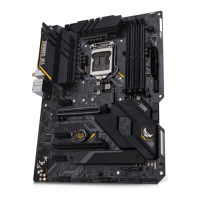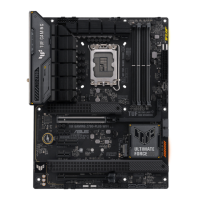3-2
Chapter 3: BIOS Setup
Chapter 3
TheBIOSsetupscreensshowninthissectionareforreferencepurposesonly,and
maynotexactlymatchwhatyouseeonyourscreen.
EnsurethataUSBmouseisconnectedtoyourmotherboardifyouwanttousethe
mouse to control the BIOS setup program.
IfthesystembecomesunstableafterchanginganyBIOSsetting,loadthedefault
settings to ensure system compatibility and stability. Select the Load Optimized
Defaults item under the Exit menu or press the <F5> hotkey. See section 3.10 Exit
menu for details.
IfthesystemfailstobootafterchanginganyBIOSsetting,trytocleartheCMOSand
reset the motherboard to the default value. See section 1.1.7 Jumpers
for information
onhowtoerasetheRTCRAM.
TheBIOSsetupprogramdoesnotsupportBluetoothdevices.
BIOS menu screen
The BIOS Setup program can be used under two modes: EZ Mode and Advanced Mode.
YoucanchangemodesfromtheExit menu or from the Exit/Advanced Mode screen.
3.2 BIOS setup program
UsetheBIOSSetuptoupdatetheBIOSorcongureitsparameters.TheBIOSscreen
include navigation keys and brief onscreen help to guide you in using the BIOS Setup
program.
Entering BIOS at startup
To enter BIOS Setup at startup, press <Delete> during the Power-On Self Test (POST). If you
do not press <Delete>, POST continues with its routines.
Entering BIOS Setup after POST
To enter BIOS Setup after POST:
Press<Ctrl>+<Alt>+<Delete>simultaneously.
Presstheresetbuttononthesystemchassis.
Pressthepowerbuttontoturnthesystemoffthenbackon.Dothisoptiononlyifyou
failedtoenterBIOSSetupusingthersttwooptions.
After doing either of the three options, press <Delete> key to enter BIOS.

